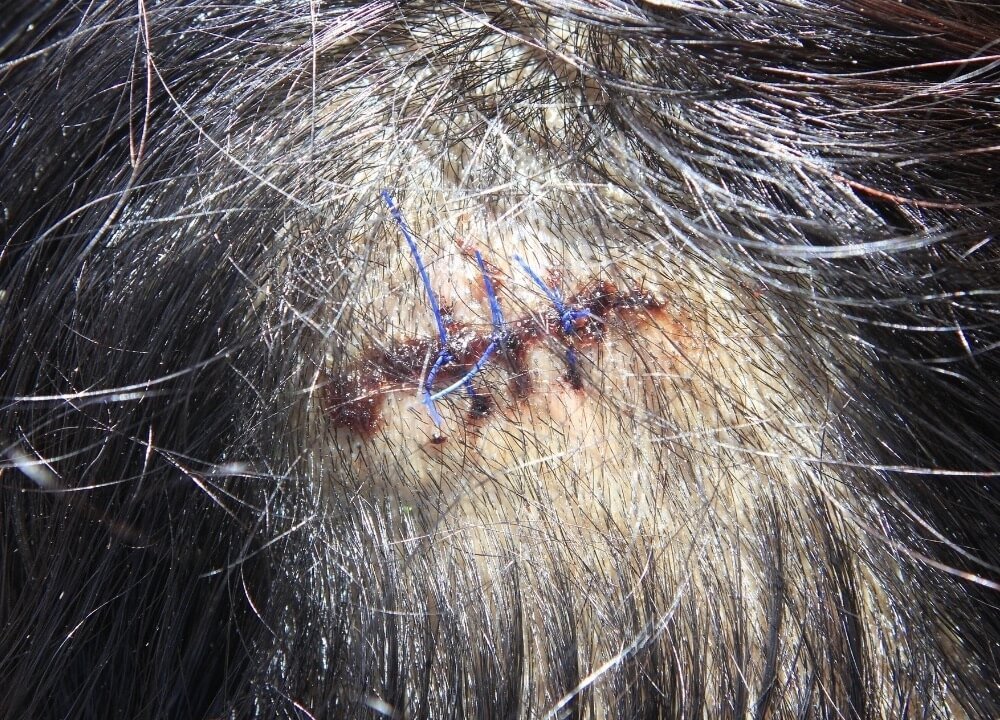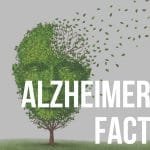There has been a lot of concern as to whether concussions cause Alzheimer’s disease (AD) in the medical field.
This is mostly because the immediate effects of a head injury can include symptoms that are seen in the disease. These would be memory loss, confusion, and changes in speech, personality, and vision.
Can Concussions Increase Risk for Alzheimer’s
These symptoms can quickly vanish, last for some time, or become permanent depending on the severity of the injury.
Also, the symptoms that develop after an injury in most cases will not become worse over time something synonymous with AD.
This said some kinds of head injuries increase the risk of a person developing Alzheimer’s later in life.
Concussions can stimulate cognitive decline

Research reveals that concussions can accelerate the development of cognitive decline and brain atrophy.
These relate to Alzheimer’s in people who are at the genetic risk of this progressive illness.
This is especially true for people who carry one form of the APOE (apolipoprotein) gene. This gene has the potential to increase the risk of AD.
These findings are documented in the journal Brain and they show promise of identifying the influence that concussions have on neurodegeneration.
One of the environmental risk factors of developing neurodegenerative illnesses such as late-onset Alzheimer’s is a moderate-to-severe traumatic brain injury.
It is still not yet clear whether concussion or mild traumatic brain injury also contribute to increasing the risk.
Several studies have been conducted to try and establish the link between Alzheimer’s disease and concussions. Check out details of a few of these studies below.
Researchers from BUSM (Boston University School of Medicine), observed 160 war veterans from Afghanistan and Iraq.
The group comprised some people who had never suffered a concussion and others who had suffered one or more concussions.
The researchers measured the thickness of the participant’s cerebral cortex using MRI imaging in 7 regions. These are usually the first to indicate atrophy in AD and 7 control regions.
The experts stated that they found that lower cortical thickness in some of the regions of the brain caused by a concussion was first to be affected in AD.
Assistant professor of psychiatry at BUSM and research psychologist at the National Centre for PTSD Jasmeet Hayes, Ph.D. and corresponding author of the study explained that the results suggested that concussions when combined with genetic factors may be associated with accelerated memory decline and cortical thickness in areas that are relevant to Alzheimer’s.
Concussions have an impact on the young brain, too

The researchers noted that the brain abnormalities appeared in a relatively young group. The average age of the participants was 32 years.
The researchers translated this to imply that the influence of concussions on neurodegeneration can be detected early in a person’s lifetime.
They, therefore, advised that after suffering a concussion, it is important to document as much as possible.
But at least when it happened and the symptoms that a person showcased. This is because when concussions combine with other factors like genetics, they can cause long-term health consequences.
The experts were hopeful that other researchers will build on their findings to give a clear answer when asked if concussions cause Alzheimer’s disease.
Head injuries can cause AD twice as likely

Another study revealed that young adults who suffer from moderate or severe head injury are two times likely to develop AD later in life.
This was after Dr. Brenda Plassman and her colleagues from Duke University Medical Centre in Durham, North Carolina conducted research trying to find the link between Alzheimer’s and head injury in over 7000 US marine and Navy veterans from World War II.
The subjects of the study included 548 veterans who had experienced a head injury and 1228 who did not have any head injuries.
The experts discovered that people with a history of head injury were more than double the risk of developing AD.
Moderate head injury was associated with a 2.3 times increase in risk.
In addition to that, severe head injury was associated with more than 4 times the risk.
Severe head injury, in this case, was one where a person remained unconscious and was admitted to a hospital.
Moderate injury referred to bouts of amnesia or loss of consciousness that lasts for less than 30 minutes after the injury.
Do genes have a role?

The experts also went ahead to test for the presence of the apolipoprotein E gene. Participants who had this gene were 14 times more likely to develop Alzheimer’s.
Because there was no apparent relationship with a head injury and APOE gene, the researchers suggested that more work is necessary.
This will allow us to understand the effects of the gene and a head injury better. Potentially, more research will also give a better understanding of the causes of AD.
Yet another study reported that brain scans of elderly persons with a prior head injury and poor memory have more build-up of plaque associated with AD which supports that concussions may cause Alzheimer’s disease.
In this study associate professor of neurology and epidemiology at Mayo Clinic Rochester and her team evaluated 448 residents of Olmsted County who did not have any signs of memory problems.
They also studied 141 residents who had mild cognitive impairment (thinking and memory problems).
All the participants of this study were 70 years and above.
Before the study, they all reported whether they had experienced a brain injury that caused the loss of memory or consciousness.
The researchers conducted brain scans on all the subjects.
The results revealed that persons who had cognitive impairment and concussion history had amyloid plaques levels that were 18% higher than those who did not have a history of head trauma but had cognitive impairment.
They concluded that the link between concussions and AD is quite complex. This is because the results showed an association but not a cause and effect link.
Risk Factors for Developing Alzheimer’s After a Concussion

Scientific research supports the idea that suffering concussions may increase the chances of a person developing AD.
Some factors also seem to affect the risk of concussions causing Alzheimer’s disease and these include:
Age
The age when a person suffers from a concussion may have an impact on whether they end up developing AD.
Several studies suggest that suffering concussions at a young age increases the risk of developing Alzheimer’s disease. This applies to when a person is older.
The severity of the Injury
The risk of concussions causing Alzheimer’s disease increases with the severity of the injury.
Repeated mild injuries may also increase an individual’s risk for future problems with reasoning and thinking.
Conclusion
Keep in mind, although concussions can increase the risk of developing AD, other factors also play a role.
Not everyone who suffers a severe head injury will end up developing the disease.
More research is still necessary to understand the link between Alzheimer’s disease and concussions.







